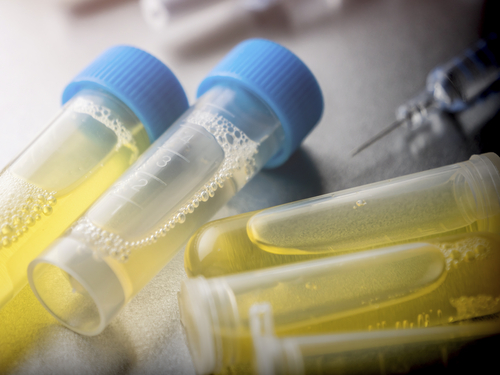P-BCMA-101 Shows Early Effectiveness in First Multiple Myeloma Patients Treated in Phase 1 Trial

P-BCMA-101, Poseida Therapeutics’ CAR T-cell therapy, is safe and effective in relapsed or refractory multiple myeloma patients, results from the first three patients enrolled in a Phase 1 trial show.
The three patients received the lowest dose of P-BCMA-101. Based on the findings, the company is now recruiting additional myeloma patients to receive the next dose in the open-label trial ((NCT03288493).
Researchers plan to enroll up to 40 patients with relapsed or refractory multiple myeloma to define the safety and maximum tolerated dose of P-BCMA-101.
Findings were recently presented during the American Association for Cancer Research (AACR) Annual Meeting 2018 in Chicago. The poster was titled “Clinical trial of P-BCMA-101 T stem cell memory (Tscm) CAR-T cells in relapsed/refractory (r/r) multiple myeloma (MM).”
“The results from the first cohort of the Phase 1 P-BCMA-101 study have surpassed historical benchmarks of safety and efficacy in multiple myeloma at this dose level and give us confidence to move ahead into additional dose cohorts,” Eric Ostertag, MD, PhD, CEO of Poseida, said in a press release.
P-BCMA-101 is a new CAR-T cell therapy designed to target BCMA, a cell surface protein produced at high levels by myeloma cells.
To produce CAR T-cells, researchers use a patient’s own T-cells collected from the blood and genetically engineered to find and destroy cancer cells.
In addition to targeting BCMA, or B-cell maturation antigen, P-BCMA-101 has several other potential advantages over previous CAR T-cell therapies. Instead of using a virus to genetically alter the cells, Poseida uses a technology called piggyBac, resulting in a 100 percent pure product, which may reduce toxicity.
Preclinical studies in mice showed that P-BCMA-101 led to more effective responses than other approaches targeting BCMA. The therapy also has a high proportion of stem cell memory T-cells, showing high durability of response without the need for re-administration.
As of April 3, the first three patients in the trial had been treated with 0.75 million P-BCMA-101 cells per kilogram (low dose). These patients had been treated with six to nine prior lines of therapy.
The first patient experienced tumor shrinkage (partial response) two weeks after receiving the cells, a positive response that was sustained at least until week 12. The second patient, who presented bone lesions at the time of treatment, had no detectable lesions by the fourth and eighth weeks after treatment. The last patient showed significant reduction of urine and blood cancer-related biomarkers, which is consistent with P-BCMA-101 cell expansion.
P-BCMA-101 cells are the first BCMA-targeted cell therapies to achieve such positive and sustained effectiveness against advanced multiple myeloma at such a low dose.
Low-dose P-BCMA-101 also showed a favorable safety profile. No cases of cytokine release syndrome (CRS) — a life-threatening adverse effect previously associated with similar therapies — or increased CRS biomarkers were reported.
Reported adverse events included reduced levels of neutrophils (a type of white blood cell) and platelets, which are common in cell therapies and myeloma treatment. No dose-limiting toxicities were observed.
Supported by the positive data, a second group of patients will now receive 2 million P-BCMA-101 cells.
“The lack of CRS in any of the three patients in spite of marked efficacy is unprecedented at this dose, which we believe is attributable to multiple differentiated aspects of our technology resulting in a highly purified CAR-T product with a high percentage of cells with a T stem cell memory phenotype,” Ostertag said.






